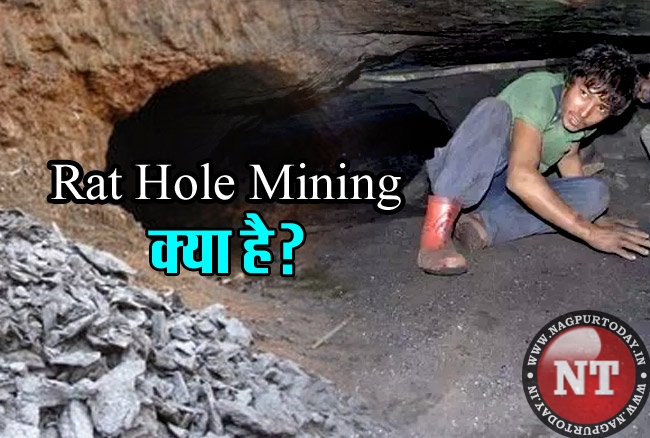 A mining practice banned for being unsafe has come to the aid of the 41 workers trapped inside an Uttarakhand tunnel after high-tech, imported machines broke down during the long-drawn operation.
A mining practice banned for being unsafe has come to the aid of the 41 workers trapped inside an Uttarakhand tunnel after high-tech, imported machines broke down during the long-drawn operation.
Rat-hole mining to rescue the trapped workers began yesterday after a 25-tonne auger machine failed in the last leg of the challenging operation. This method of manual drilling has made quick progress and the diggers are now metres away from the workers who have been confined for 17 days.
What Is Rat-Hole Mining?
In the heart of Meghalaya, a northeastern state in India, a perilous practice known as rat-hole mining persists, revealing the human cost of extracting coal through manual drilling. This method, carried out by skilled workers, involves the creation of narrow pits, just wide enough for a single person to descend into the depths of the Earth.
The Technique:
Rat-hole mining is characterized by the excavation of small, cramped pits in the ground. Once these pits are meticulously dug, miners descend into the subterranean world using rudimentary tools, ropes, and bamboo ladders. The cramped conditions and manual nature of the process make it a physically demanding and hazardous occupation.
The Hazards:
This method of mining primarily targets the extraction of coal, and while it has been a traditional practice in Meghalaya, it is not without its perils. The narrow confines of the rat holes amplify the risks associated with mining, making it an extremely dangerous endeavor for those involved.
One of the major concerns is the high likelihood of asphyxiation in these confined spaces, as the circulation of air is severely restricted. Additionally, the lack of proper ventilation poses a serious threat to the miners, leading to a heightened risk of respiratory issues and other health complications.
Miners working in these conditions also face challenges such as a scarcity of oxygen and the constant risk of hunger due to the remote locations of the mining sites. The combination of these factors makes rat-hole mining not only physically demanding but also mentally and emotionally taxing.
Illegality and Global Condemnation:
The alarming rate of accidents and fatalities associated with rat-hole mining has led to its prohibition in many countries. Governments and international bodies have condemned this practice due to the inherent dangers it poses to human life.
While Meghalaya has witnessed efforts to regulate and curb rat-hole mining, the persistence of this perilous method highlights the complex socio-economic factors that contribute to its continuation. Balancing the livelihoods of the miners with the imperative of ensuring their safety remains an ongoing challenge for authorities.


















